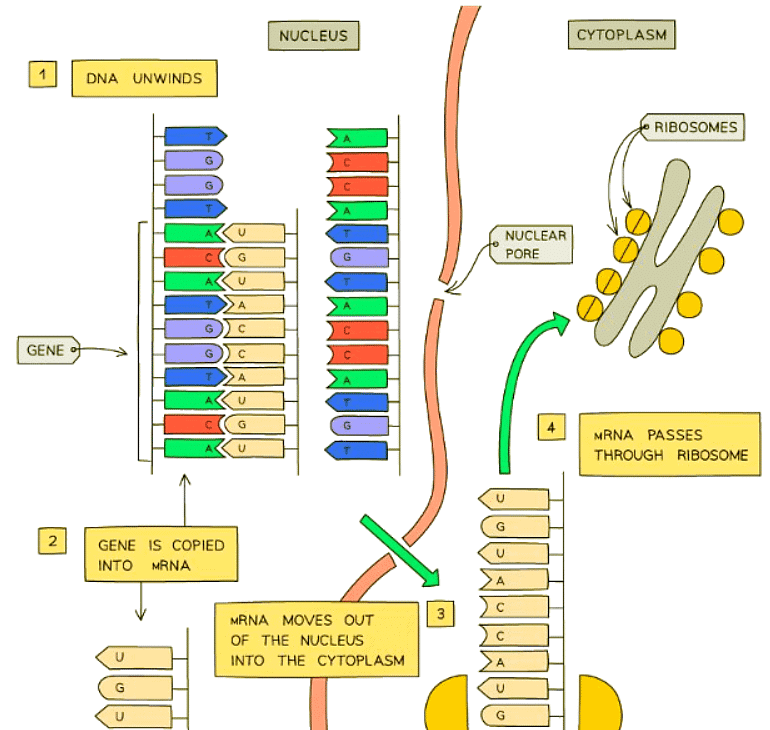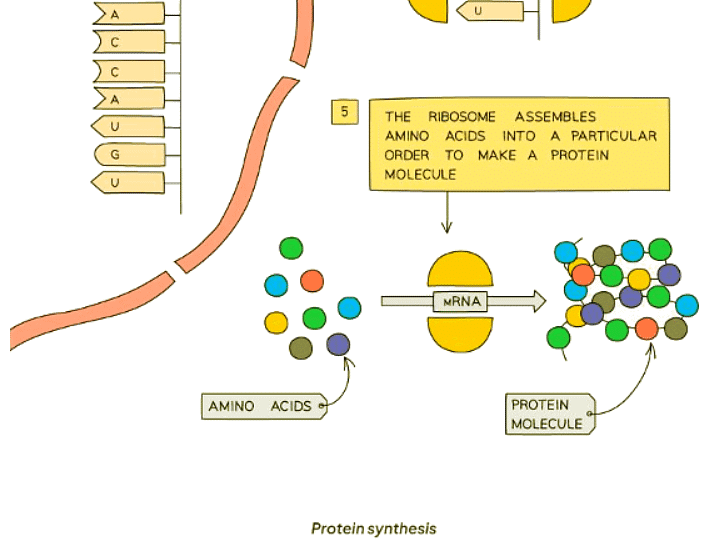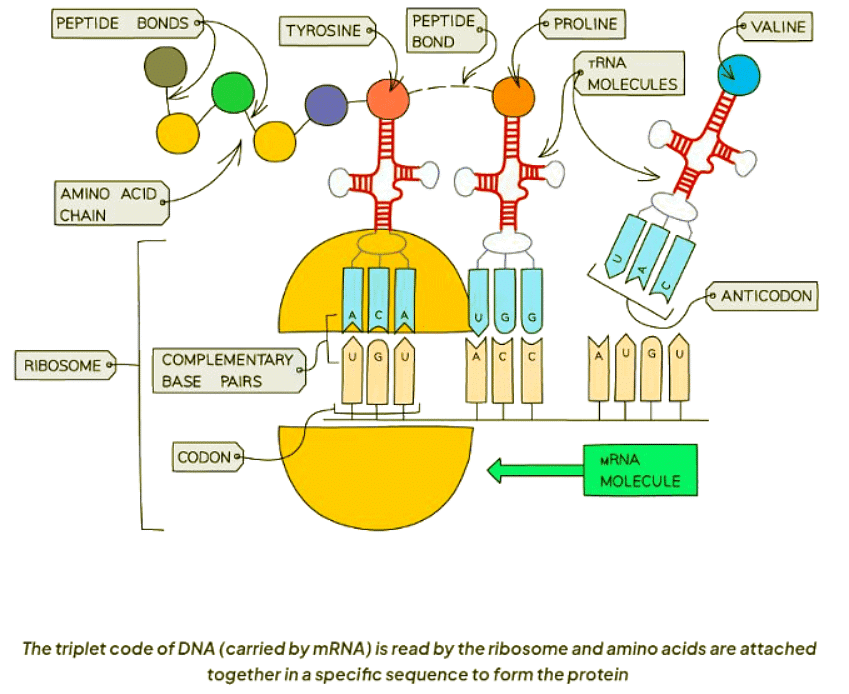Class 10 Exam > Class 10 Notes > Biology for GCSE/IGCSE > Which Proteins are Synthesised?
Which Proteins are Synthesised? | Biology for GCSE/IGCSE - Class 10 PDF Download
Control of Gene Expression


- Gene expression refers to whether a gene is actively producing a protein in a specific cell. Inactive genes are 'switched off' to conserve energy and resources, allowing only essential proteins to be produced for the cell's function.
- Most genes remain inactive in a cell to prevent unnecessary energy consumption.
- Inactive genes prevent wastage of energy and resources.
- This inactivity is crucial as producing non-essential proteins would be inefficient for the cell.
- Only genes coding for proteins vital to the cell's function are activated or 'switched on'.

The process of how ribosomes build proteins is vital for the functioning of cells. Here's a breakdown of this intricate mechanism:
- Role of DNA: DNA serves as the blueprint for protein synthesis, carrying the triplet code that is transcribed into mRNA.
- Function of Ribosomes: Ribosomes decode the mRNA sequence and link amino acids together in a specific order to form proteins.
- Cell Function Control: DNA regulates cell activities by overseeing protein production.
- Versatility of Proteins: Proteins created can be enzymes, antibodies, or receptors crucial for various bodily functions.
- Gene Expression Specificity: While cells in an organism share the same genes, not all genes are expressed in each cell; only necessary proteins are synthesized.
Haploid and Diploid Cells
- 23 different chromosomes: Humans possess 23 different chromosomes in each cell.
- 46 chromosomes: Most body cells (excluding gametes) contain 2 copies of each chromosome, totaling 46 chromosomes.
- Diploid nuclei: Cells with two sets of chromosomes are known as diploid nuclei.
- Gametes: Egg and sperm cells have only one copy of each chromosome, resulting in a total of 23 chromosomes per cell.
- Haploid nuclei: Nuclei with a single set of unpaired chromosomes are termed haploid nuclei.
Question for Which Proteins are Synthesised?Try yourself: What is the role of DNA in controlling cell activities?View Solution
The document Which Proteins are Synthesised? | Biology for GCSE/IGCSE - Class 10 is a part of the Class 10 Course Biology for GCSE/IGCSE.
All you need of Class 10 at this link: Class 10
|
101 videos|193 docs|33 tests
|
FAQs on Which Proteins are Synthesised? - Biology for GCSE/IGCSE - Class 10
| 1. Which proteins are synthesized during the control of gene expression? |  |
Ans. The proteins synthesized during the control of gene expression are determined by the specific genes that are activated or repressed in response to various signals and environmental conditions.
| 2. How do cells regulate which proteins are synthesized? |  |
Ans. Cells regulate which proteins are synthesized by controlling the transcription of genes, mRNA processing, translation, and post-translational modifications. This ensures that only the necessary proteins are produced at the right time and in the right amount.
| 3. What role do transcription factors play in controlling gene expression? |  |
Ans. Transcription factors are proteins that bind to specific DNA sequences and regulate the transcription of genes. They can activate or repress gene expression by promoting or inhibiting the binding of RNA polymerase to the gene's promoter region.
| 4. How do environmental factors influence gene expression? |  |
Ans. Environmental factors such as temperature, nutrients, hormones, and stress can influence gene expression by activating or repressing specific genes. This allows cells to respond and adapt to changes in their surroundings.
| 5. What is the significance of epigenetic modifications in controlling gene expression? |  |
Ans. Epigenetic modifications, such as DNA methylation and histone acetylation, play a crucial role in controlling gene expression by regulating access to the DNA and influencing the binding of transcription factors. These modifications can be passed down through generations and contribute to the development and differentiation of cells.
Related Searches















